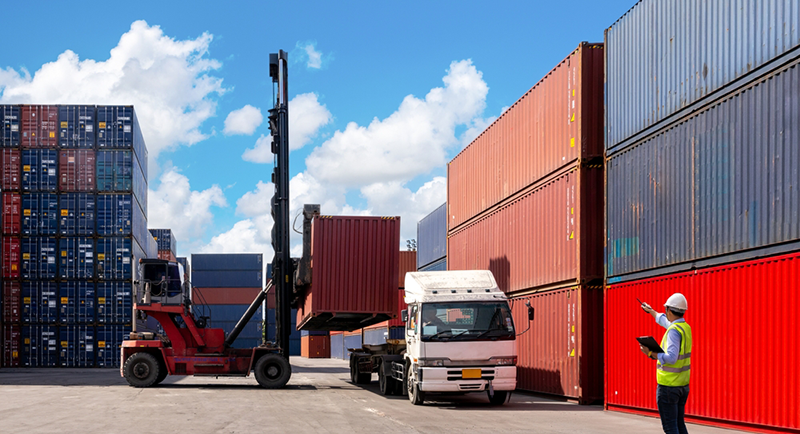Best-Selling Products in Latin America: Opportunities for 2025
Latin America continues to be a dynamic region for international trade, offering diverse opportunities for investors and multinational companies. As...

Latin America is an increasingly attractive region for international trade and expansion. Its growing middle class, diverse natural resources, and trade agreements with major global economies make it a strategic destination for exporters.
Exporting to Latin American countries often requires a solid understanding of regulatory frameworks, logistics procedures, and invoicing practices. For business leaders looking to expand into new markets or export for the first time, understanding these requirements is essential to developing profitable and compliant operations.
This guide offers an in-depth analysis of the regulatory, logistical, and tax aspects of exporting to the region, including detailed examples from selected countries.
| Content |
Each Latin American country has its own customs laws and trade policies. Key areas to address include exporter registration, product classification, regulatory compliance, and obtaining the necessary licenses.
Understanding consumer demand, local competition, tax and tariff obligations, and business practices is critical to building strong, respectful, and sustainable business relationships with local partners.
The first step is to define the objectives of your export process. Do you want to expand your business into new markets? Are you looking to diversify your product or service offering? Are you interested in increasing your company's profitability? Establishing concrete goals will allow you to direct your research more strategically and efficiently.
The exporter must comply with the requirements of the destination customs office. Export documents, such as commercial invoices, certificates of origin, export licenses, customs documentation, and other documents required by government authorities, are required.
Pro forma invoice: This is a preliminary document issued by the exporter to provide detailed information about the products or goods.
Commercial invoice: This is one of the most important documents in commercial exchange. It specifies the concept, quantity, and value of the products or services sold, as well as the terms of delivery and payment.
Certificate of origin: This document certifies the origin of the goods, that is, the country where they were produced.
Transportation documents: These are transportation contracts between the parties and serve as acknowledgment of receipt of the goods in the destination country. Some documents include a waybill, a bill of lading, or an air waybill.
Insurance policy: This is linked to the insurance of the goods during the voyage. It can be contracted by the exporter or the importer.
Importing countries may impose specific regulations regarding labeling language, units of measurement, and safety standards to ensure compliance with local consumer and market protection regulations.
It's essential to have specialized advice on transportation and supply chain matters. Seeking advice on international logistics and knowledge of local customs procedures will be of great help when embarking on an export venture.
In this context of cross-border shipments, the nature of the products to be exported must be considered, and aspects such as the Incoterm used, the distance, delivery time, packaging, insurance and rates, among others, must be evaluated.
Latin American customs authorities require a standard set of commercial and transportation documents. These documents not only facilitate clearance but also serve as legal proof of commercial activities.
1. Commercial Invoice: This document describes the transaction between the buyer and the seller. It must contain:
2. Packing List
A separate document that details how the goods are packaged and their physical characteristics:
3. Bill of Lading or Air Waybill
This document serves as a shipping receipt and transportation contract. The shipping or transportation company issues it and must accurately reflect the contents and route of the cargo.
4. Certificate of Origin
Required to determine whether goods qualify for preferential tariff treatment under the Free Trade Agreements (FTAs). Must be signed and validated by an authorized entity.
5. Export Declaration
It is submitted to the customs authority of the exporting country. It includes detailed information about the transaction and allows for monitoring trade flows and regulatory compliance.
6. Insurance Certificate
Mandatory under Incoterms such as CIF (Cost, Insurance and Freight), this certificate verifies that the cargo is insured against loss or damage during transport.
In Latin America, export invoicing practices differ from domestic transactions, and strict tax regulations must be followed.
Export invoices are typically issued in foreign currencies, such as US dollars or euros. Exporters should verify whether the destination country accepts the selected currency and consider the exchange rate implications for revenue recognition.
Exports are generally exempt from Value Added Tax (VAT) throughout the region, but to apply this exemption, companies must issue a specific export invoice format, declare the transaction to customs, and retain the shipping receipt (B/L or AWB). Failure to comply with documentation rules may result in an obligation to pay VAT or the denial of the exemption.
Most Latin American countries do not apply VAT to exports, but exporters must provide specific documentation to prove that the transaction qualifies. Under the tax framework, both the exporter and importer must be identified by an ID, and who assumes the costs and risks at each stage of the shipment is defined. Finally, the invoice must reflect the true commercial value of the goods for an accurate assessment of duties.
Local tax authorities may require exporters to submit invoices electronically and report them through national platforms (e.g., the CFDI in Mexico or Brazil's NF-e system).
Incoterms, short for International Commercial Terms, are standardized commercial terms published by the International Chamber of Commerce (ICC) that define the responsibilities of buyers and sellers in international transactions. They determine who bears the costs and risks associated with transportation, insurance, export and import clearance, and delivery of goods.
The adoption and implementation of Incoterms vary across Latin America due to differences in customs infrastructure, regulatory interpretation, and logistics maturity:
Mexico and Chile: These countries usually offer greater flexibility and predictability in the application of Incoterms. Customs processes are streamlined, and freight forwarders are familiar with ICC standards. CIF and FOB terms are widely accepted and efficiently used.
Brazil: Although Incoterms are recognized, the complexity of tax regulations (including ICMS and IPI) and bureaucratic customs procedures can complicate the application of terms such as DDP or DAP. Sellers often prefer FOB or CIF to avoid national tax obligations and import procedural burdens.
Colombia: Exporters typically use FOB and CIF terms. However, differences between contractual Incoterms and their interpretation by local customs may require legal assistance. Port delays and document discrepancies are common.
Argentina (optional): Due to exchange controls, volatile import policies, and tiered taxation, exporters often avoid Incoterms, which require the buyer to assume customs liability (such as DDP). FOB or FCA is considered more secure.
At H&CO, we specialize in helping companies successfully address these challenges through our Global Expansion Services. Whether you're exporting for the first time or expanding your operations to multiple countries, our integrated solutions are designed to ensure regulatory compliance, mitigate risks, and foster sustainable growth.

Latin America continues to be a dynamic region for international trade, offering diverse opportunities for investors and multinational companies. As...

Expanding your business into international markets is an exciting opportunity, but it requires careful planning and a thorough understanding of the...

A registered office address is more than just a mandatory requirement; it’s a cornerstone of your business’s legal and professional framework....